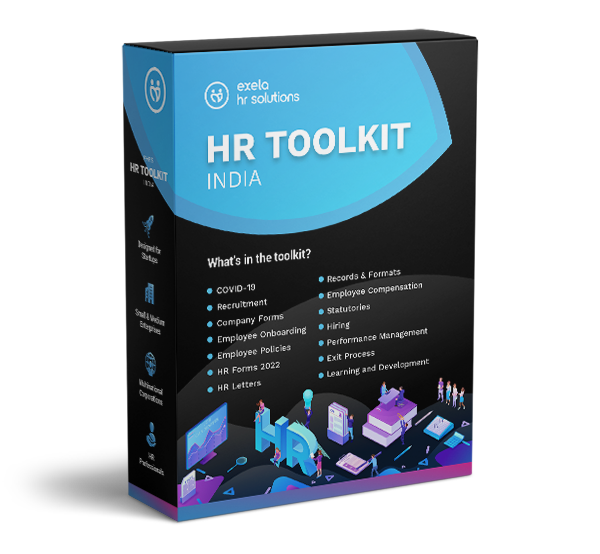
Attracting and retaining top talent is crucial for sustained success in today's modern business world. One metric that profoundly affects organizational performance is the Cost of Vacancy (COV). COV refers to the financial impact and lost productivity incurred when a position within a company remains unfilled. It takes into account not only the direct costs associated with the recruitment process but also factors in the indirect costs stemming from decreased productivity, increased workload on existing employees, and potential impacts on customer satisfaction.
As organizations grapple with talent acquisition challenges and the imperative to minimize COV, many are turning to innovative solutions such as Recruitment Process Outsourcing (RPO).
What is RPO?
RPO is a strategic partnership where a company engages an external service provider to manage some or all aspects of its recruitment process. This can include tasks such as sourcing candidates, conducting interviews, and even overseeing onboarding processes. RPO is not merely a cost-cutting measure; instead, it is a holistic approach to improving the efficiency and effectiveness of talent acquisition.
This blog delves into the critical relationship between COV and talent acquisition while exploring the transformative potential of RPO in mitigating these challenges.
Dive below to learn more about having a more robust and cost-effective approach to talent acquisition, ultimately fostering sustained growth and success in a competitive market.
Cost of Vacancy (COV)
The Cost of Vacancy (COV) encompasses more than just the financial expenses incurred during the hiring process. It involves a comprehensive evaluation of the direct and indirect costs associated with a position remaining unfilled.
-
Direct costs include recruitment advertising, agency fees, and any expenses related to candidate assessments and background checks.
-
Indirect costs, often the more substantial contributors to COV, encompass:
- Lost productivity
- Overload existing staff
- Potential negative impacts on customer satisfaction and company reputation
Calculating COV involves a meticulous analysis of both tangible and intangible factors.
-
Tangible costs are relatively straightforward to measure, involving quantifiable monetary investments.
-
Intangible costs may include the strain on team morale, decreased employee engagement, and the potential long-term effects on company culture.
Impact of COV on organizations
The impact of COV extends far beyond the immediate financial implications. A prolonged vacancy not only disrupts workflow and hampers productivity but can also strain employee morale and hinder the achievement of organizational goals. Team members forced to take on additional responsibilities may experience burnout, leading to a decline in overall job satisfaction and potential turnover. Furthermore, the adverse effects of a prolonged hiring process can extend to customer relationships, affecting service quality and overall brand perception.
The overall organizational impact of COV is multifaceted, influencing employee engagement, customer satisfaction, and the ability to seize strategic opportunities. As such, gaining a comprehensive understanding of COV is crucial for businesses seeking to foster a resilient and high-performing workforce.
Common challenges associated with high COV
High COV is often symptomatic of underlying challenges within the recruitment process. These challenges can include:
- ineffective talent sourcing strategies,
- lengthy and convoluted hiring processes,
- inadequate candidate engagement.
Additionally, a lack of alignment between hiring goals and overall business objectives can also contribute to difficulties in attracting and retaining top-tier talent.
Identifying and addressing these challenges is imperative for organizations looking to decrease their COV. A proactive approach to talent acquisition, coupled with strategic interventions, is essential to mitigating the negative impacts of prolonged vacancies on organizational success.
Also Read: Emerging Trends in RPO: A Look into the Future of Talent Acquisition
The Role of Recruitment Process Outsourcing (RPO)
Traditional recruiting methods often involve in-house HR teams managing the entire recruitment process. While this approach can be practical, it may lack the scalability, specialized expertise, and resources required to meet the evolving demands of modern talent acquisition. Conversely, RPO introduces an external partner with dedicated skills and technologies specifically designed for optimal recruitment outcomes.
RPO providers leverage their industry insights, market knowledge, and recruitment best practices to deliver a strategic and customized approach. This accelerates the hiring process and ensures a higher quality of candidates through advanced screening and assessment methodologies.
Benefits of implementing RPO in reducing COV
-
Cost Efficiency: RPO can lead to significant cost savings by optimizing recruitment processes, reducing time-to-fill, and minimizing the need for extensive in-house resources.
-
Scalability and Flexibility: RPO allows organizations to scale their recruitment efforts up or down based on business needs, providing flexibility in response to market fluctuations.
-
Access to Talent Pools: RPO providers often have access to broader talent pools and networks, enabling organizations to tap into a diverse range of candidates.
-
Enhanced Technology Integration: RPO providers leverage cutting-edge recruitment technologies, including applicant tracking systems and data analytics, to enhance the efficiency and effectiveness of the hiring process.
-
Focus on Core Competencies: Organizations can redirect internal resources towards their core competencies by outsourcing recruitment processes, fostering overall business growth.
-
Improved Quality of Hires: RPO providers use sophisticated screening and assessment tools to identify candidates who meet skill requirements and align with the organization's culture and long-term objectives.
Embracing RPO as a strategic solution can be a game-changer for organizations looking to reduce COV, enhance their talent acquisition capabilities, and gain a competitive edge in the talent market.
How to improve the talent acquisition process with RPO?
-
Strategic Positioning: RPO providers work closely with organizations to craft compelling employer branding messages. This strategic positioning helps attract top-tier talent by highlighting the company's values, culture, and opportunities for professional growth.
-
Market Insight and Trends: RPO experts bring a wealth of market insight and knowledge of industry trends. This enables organizations to stay ahead of the competition, ensuring that their recruitment strategies align with current market demands and candidate expectations.
-
Effective Sourcing Strategies: RPO providers employ advanced sourcing techniques
Conclusion
Recruitment Process Outsourcing (RPO) proves instrumental in reducing the Cost of Vacancy through streamlined processes and strategic talent acquisition. Organizations must view RPO as a cost-saving measure and a transformative investment for long-term success. Consider evaluating your current recruitment strategies and explore partnerships with RPO providers for lasting benefits.
Exela HR Solutions stands out in this landscape, offering tailored RPO services that leverage advanced technology, prioritize quality candidate matching, and foster collaborative approaches. Our focus on measurable results ensures a streamlined recruitment process that not only reduces vacancy costs but also elevates the overall quality of talent acquisition, positioning your organization for sustained success in the competitive business environment.
Get Exela HR Solutions now!
DISCLAIMER: The information on this site is for general information purposes only and is not intended to serve as legal advice. Laws governing the subject matter may change quickly, and Exela cannot guarantee that all the information on this site is current or correct. Should you have specific legal questions about any of the information on this site, you should consult with a licensed attorney in your area.





